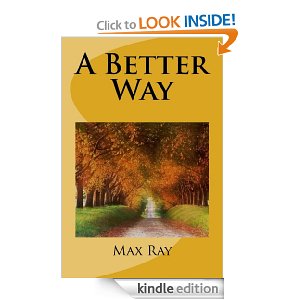Perhaps We Have Something Better Than Power: Thoughts on the Cana sequence from The Robe (1953)
March 26, 2015 Leave a comment
The spring of the year brings with it an observance of a great event: many Christians around the world remember the death, burial and resurrection of Jesus of Nazareth. Much has been written about that event. Movies have been made, and sadly, many may seem to trivialize its gravity and importance. Some pictures do, however, capture the miracle of Jesus. One such film was The Robe, from 1953.
In the film, Richard Burton plays the spiritually beleaguered Roman officer, Marcellus Gallio, who, after angering the rising emperor was all but exiled to Palestine. When his tour was ended, he was tasked with one last mission: oversee the crucifixion of Jesus. He complied, thinking it was only a routine execution. He discovered it was anything but that when his Greek servant left him with Jesus’ robe, that apparently ‘bewitched” him and drove him to madness. In order to save his sanity, Gallio returns to Palestine from Rome to seek answers.
One of his first stops is Cana of Galilee. There, he meets Justus (played by Dean Jagger, whom you may remember as the General in White Christmas), an elder of the Jesus followers in Cana, kindly, welcoming, and humble. Before he introduces Gallio to the Big Fisherman, Simon Peter (portrayed by Michael Rennie), he tells him something of Jesus’ actions and influence in and around Cana. Jesus had healed his grandson of a club foot, allowing him to live a normal life. He also touched the life of a young woman named Miriam, played beautifully by Betta St. John.
The movie is so compelling in so many ways. It captures the essence of Christianity and juxtaposes it against the anxiety of a person who is lost and struggling to make sense of his privileged yet somehow meaningless life. In the Cana sequence, there are a couple of magnificent exchanges both about and with Miriam. Following is a fairly accurate transcript of those scenes.
Marcellus Gallio – Who is she?
Justus- Her name is Miriam. You’ve seen my grandson. Miriam is another on whom Jesus looked.
Marcellus Gallio – Another miracle?
Justus – If you want to use the word. When she was 15, she was struck down by paralysis. It left her hopelessly crippled, and hopelessly bitter about life. She ate herself away with hate and consumed everyone with her envy and malice.
Marcellus Gallio – But she’s still a cripple. She still can’t walk.
Justus – No, she can’t.
Marcellus Gallio – If he was such a magician, why didn’t he cure her?
Justus – He did.
Marcellus Gallio – I don’t understand.
Justus – Have you had supper?
Marcellus Gallio – No.
Justus – Perhaps you will honor my poor house.
Marcellus Gallio – Thank you.
Justus – Then one day there was a wedding here in Cana. The whole village took part in it, all but Miriam. She stayed home and wept. A wedding, you see, when no man would look at her and her twisted body. But when her parents returned to the house, they found her, as she is now, as you saw her, smiling and singing.
Marcellus Gallio – Was Jesus at the wedding?
Justus – Yes. But he came late.
Marcellus Gallio – So now she spends her time singing fables about the man.
Justus – But they’re not fables.
Marcellus Gallio – Surely you don’t believe that he rose from the dead?
Justus – He lives more surely than we do.
Marcellus Gallio – He’s dead. And no moonstruck girl can sing him back to life again.
Justus – How do you know that he’s dead?
Marcellus Gallio – A soldier told me. A soldier who saw the lance thrust into his side. A soldier who was… who was out there!
Justus – What’s wrong?
Marcellus Gallio – Were you out there?
Justus – You’re ill. Let me help you.
Marcellus Gallio – No. Let me alone. Since the voyage, I’ve been…I’ve been indisposed.
—–
Miriam – Is it that you resent what our master taught us?
Marcellus Gallio – Why should I resent it? He means nothing to me.
Miriam – Then why do you consider him your enemy? You see, we know why you’re here, Marcellus. It’s simple, really. No merchant, even a stupid one, would have paid those prices. And the look of you, those shoulders. We guessed at once what you were.
Sit down, please, here in the shade. The sun’s hot.
Why must you do this, Marcellus? Is it for Rome?
Marcellus Gallio – Yes. And for myself, to save my reason.
Miriam – Justus said you were ill. There’s one who can help.
Marcellus Gallio – No. No. He was crucified and buried. That was the end of him.
Miriam – That was the beginning. He’s with his father, but he left his word with us and taught us how to use it.
Marcellus Gallio – Don’t confess to sorcery. You’ll make things worse.
Miriam – He was no sorcerer, Marcellus. He cast no spells. He only asked two things of us: “love God,” he said, “and love ye one another.” And he meant not only the Jews, but Romans and Greeks, slaves and soldiers, the strong and the weak, everyone. He asked us to build our lives on this love, this charity. To build a new world.
Marcellus Gallio – Worlds are built on force, not charity. Power is all that counts.
Miriam – Perhaps we have something better than power. We have hope.
Marcellus Gallio – That you of all people should say that.
Miriam – What do you mean, Marcellus?
Marcellus Gallio – You say he could work miracles, but he left you as he found you.
Miriam – I used to wonder at that myself, until faith taught me the answer. He could have healed my body, and it would have been natural for me to laugh and sing. And then I came to understand that he had done something even better for me. He’d chosen me for his work. He’d left me as I am so that all others like me might know that their misfortune needn’t deprive them of happiness within his kingdom.
Marcellus Gallio – It’s beyond reason that anybody should think as you do.
Miriam – If you had only known him, if you had ever looked into his eyes, heard him speak…
Marcellus Gallio – I did.
Where it is revealed that Jesus had not healed Miriam of her disability, I was reminded of the healing of the paralytic man, lowered into the house through the roof. The story is related by Matthew, Mark, and Luke. Jesus does a most unusual thing in Luke 5.20: “And when he saw their faith, he said, “Man, your sins are forgiven you.”
Of course the Pharisees were up in arms, declaring that none but God could forgive sins.
Luk 5:22 When Jesus perceived their thoughts, he answered them, “Why do you question in your hearts? 23 Which is easier, to say, ‘Your sins are forgiven you,’ or to say, ‘Rise and walk’? 24 But that you may know that the Son of Man has authority on earth to forgive sins”—he said to the man who was paralyzed—”I say to you, rise, pick up your bed and go home.”
25 And immediately he rose up before them and picked up what he had been lying on and went home, glorifying God. 26 And amazement seized them all, and they glorified God and were filled with awe, saying, “We have seen extraordinary things today.”
The obvious desire of the paralytic man was to walk. Jesus did far more than heal his physical infirmity. In The Robe, Miriam was healed not in body, but in mind and spirit. She rose above adversity to serve and to share.
But there are also some more beautiful points in this short segment from the movie. Miriam explains to Marcellus the underlying foundation of how Jesus wants us to live, and that is to live by love, both love for God and love for one another. She says Jesus wants us to build a new world.
In true Roman fashion, Gallio replied that worlds are built on force, that power is all that counts. That is the mindset that is encountered all too often throughout the world, and has been encountered throughout history. Force and power may subdue and even subjugate. But neither force nor power can instill love and good will, only fear and subservience.
Miriam says Jesus’ followers have something better than power: hope. Hope is perhaps one of the greatest messages of the cross, and even more directly, the empty tomb. Paul said that after all else is dust, three things would remain: faith, hope and love. Through faith, we experience the love of God and the love of others who love and serve him. Through faith and love, we have the hope of becoming something more, something beyond the limitations and frailties of the human organism. We have hope to see and experience and become part of a new order, a new world, a restored universe not cast into the entropy of despair and disarray by the tragedy of the fall and its ongoing iterations in every life, but as fresh and as vibrant as the instant God conceived it in thought.
Although The Robe is not inspired, it is indeed inspiring. It presents the essence of Christianity virtually untainted by denominational dogma. That essence is love.
It is sad that some people only think about the Jesus twice a year, at Christmas, to mark his birth and at Easter to mark his death and resurrection. Some would say that it is pointless to live a life directed by such “fables,” but I would counter, what do you lose? The richest, most contented lives I have ever seen are those that are steeped in love. That is the Jesus way. And I, for one, am glad I found it.





Recent Comments